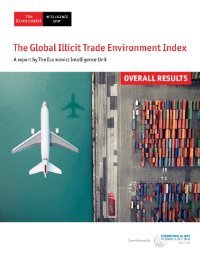The Global Illicit Trade Environment Index
By Economist Intelligence Unit.
Behind most every major headline, every major story in the news, lies another potential headline and another story about some form of illicit trade. From the refugee crises in the Mediterranean and South-east Asia, where the chaos is providing cover for human traffickers, to North Korea, a criminal state that couldn’t survive if it didn’t trade in arms, illicit cigarettes and counterfeit currency. Even the investigation into Russian interference in the 2016 US presidential election has led to indictments on money laundering, which is both a product of illicit trade and a facilitator of it. To measure how nations are addressing these and other issues related to illicit trade, the Transnational Alliance to Combat Illicit Trade (TRACIT) has commissioned the Economist Intelligence Unit to produce the Global Illicit Trade Environment Index. The global index expands upon an Asia-specific version, originally created by The Economist Intelligence Unit in2016toscore17economiesinAsiaonthe extent to which they enabled or prevented illicit trade. This year’s updated and expanded version now includes 84 economies, providing a global perspective and new insights on the trade’s societal and economic impacts.During research for the construction of the index and in writing this report, The Economist Intelligence Unit interviewed executives and • experts from across the world. Their time and insights are greatly appreciated.
NY: TRACIT 2017. 44p.


